Vascular neurosurgery is a specialized field within neurosurgery that focuses on the central nervous system. Vascular neurosurgeons diagnose and treat disorders affecting the blood vessels of the brain and spinal cord.
At Haynes Neurosurgical Group, our highly specialized neurosurgeons have extensive experience using vascular neurosurgery to treat disorders affecting the central nervous system.
Dr. R. Cem Cezayirli, Dr. Robert J. Johnson Jr., and Dr. Phillip Cem Cezayirli bring a wealth of expertise, with affiliations to prestigious medical organizations and deeply specialized experience in vascular neurosurgery.
Our experts can treat a range of vascular neurological conditions. Some of these include:
Cerebral aneurysms are weakened areas in blood vessels, often likened to a balloon filled with blood. These vulnerabilities can pose a risk of rupture, leading to severe consequences such as hemorrhagic strokes.
We conduct detailed assessments of weakened blood vessels in the brain to understand the specific dynamics of each aneurysm. Our interventions aim to treat existing aneurysms and prevent the risk of rupture, ensuring long-term neurological health.
AVMs are abnormal tangles of blood vessels that disrupt the normal blood flow in the brain. AVMs may occur anywhere in the body. However, they are most commonly seen in the brain and spine. These malformations can lead to neurological symptoms and pose a risk of rupture.
At Haynes Neurosurgical Group, each case of AVM is approached with a unique treatment plan, ensuring a personalized and effective strategy. Treatment options may include surgery, radiosurgery, or embolization procedures.
Strokes are neurological emergencies caused by disrupted blood flow to the brain. The vascular aspect of strokes is crucial for both immediate and long-term management.
Our approach considers the broader aspects of stroke management, including vascular components crucial for long-term recovery.
This condition is caused by the narrowing or blockage of the major neck arteries (carotid arteries), affecting blood flow to the brain. It can lead to complications such as strokes.
Our treatments address existing conditions and also mitigate potential complications related to carotid artery disease. Treatment options for carotid artery disease may include medications to decrease cholesterol and blood pressure, lifestyle changes, and surgery to remove plaque or to widen the narrowed arteries.
This condition occurs due to a narrowing of blood vessels within the skull, which can impede blood flow to the brain and increase the risk of strokes. Precision is essential in managing this condition.
We focus on achieving optimal outcomes through a tailored approach that considers the distinctive characteristics of each case.
Problems with your blood vessels can cause bleeding or circulation problems, resulting in strokes, headaches, and other complications. Vascular neurosurgery can use open or minimally invasive surgical techniques to treat these problems.
Based on your specific vascular condition, our neurosurgeon will assess potential surgical intervention options for you. This can include procedures such as craniotomy or neck surgery, endovascular intervention, or radiosurgery. The treatment approach adopted could also involve a blend of methods.
Recent technological advancements and refined microsurgical techniques have also made minimally invasive craniotomies a viable option for select cases. Rest assured that our neurosurgeons will discuss all possible options with you.
Endovascular neurosurgery is a minimally invasive approach to treating vascular conditions within the brain and spinal cord. This technique involves threading catheters through blood vessels to reach the site of the problem, eliminating the need for traditional open surgery.
During the procedure, a catheter is introduced through a blood vessel in the groin or another area of the body. It is guided to the affected area using fluoroscopic guidance.
Once in position, various tools and devices can be passed through the catheter tube. For example, coils may be used for aneurysm treatment or embolic agents to block abnormal vessels.
The minimally invasive nature of endovascular neurosurgery often results in shorter recovery times and reduced postoperative discomfort.
A craniotomy is a conventional surgical procedure that involves temporarily removing a part of the skull to access the nerves and tissue of the brain. This method is employed for various neurosurgical interventions, including tumor removal, aneurysm clipping, and the treatment of traumatic brain injuries.
During the procedure, a precise incision is made in the scalp, and the neurosurgeon creates a bone flap in the skull to reveal the brain. Once the necessary procedure is completed, the bone flap is repositioned and then secured with plates and screws.
Craniotomies allow for direct access to the brain, enabling intricate surgeries that may not be feasible with minimally invasive techniques.
Radiosurgery is a non-invasive technique that uses precisely targeted radiation to treat various neurological conditions, including tumors and vascular abnormalities.
During the procedure, focused beams of radiation are precisely directed at the target area, typically with the help of advanced imaging technology. The radiation targets the abnormal tissue or tumor, inhibiting its growth or causing it to shrink over time.
Radiosurgery is often performed as an outpatient procedure, and more than one session may be required for optimal results. It is particularly beneficial for cases where traditional surgery might be challenging due to the location or nature of the condition.
At Haynes Neurosurgical Group, we are committed to providing unparalleled comprehensive care throughout your neurosurgical journey.
Our patient-centric approach includes:
- Pre-operative Evaluations: Before any intervention, you will have thorough pre-operative evaluations with our expert, including advanced imaging and consultations.
- Post-operative Care: We also provide post-operative care to monitor your recovery and minimize post-surgical complications.
- Rehabilitation Services: We also integrate rehabilitation services into our care plans. Our team can connect you with rehabilitation specialists to create tailored programs that help restore functionality, alleviate pain, and enhance overall well-being.
Explore the world of advanced neurosurgical care with Haynes Neurosurgical Group. We understand the deep impact neurological conditions can have on your life.
Our seasoned neurosurgeons use highly advanced technologies and employ a patient-centric ethos at Alabama’s premiere neurosurgical practice.
To schedule a consultation with one of our experts, call us at (205) 787-8676 or request an appointment online.


